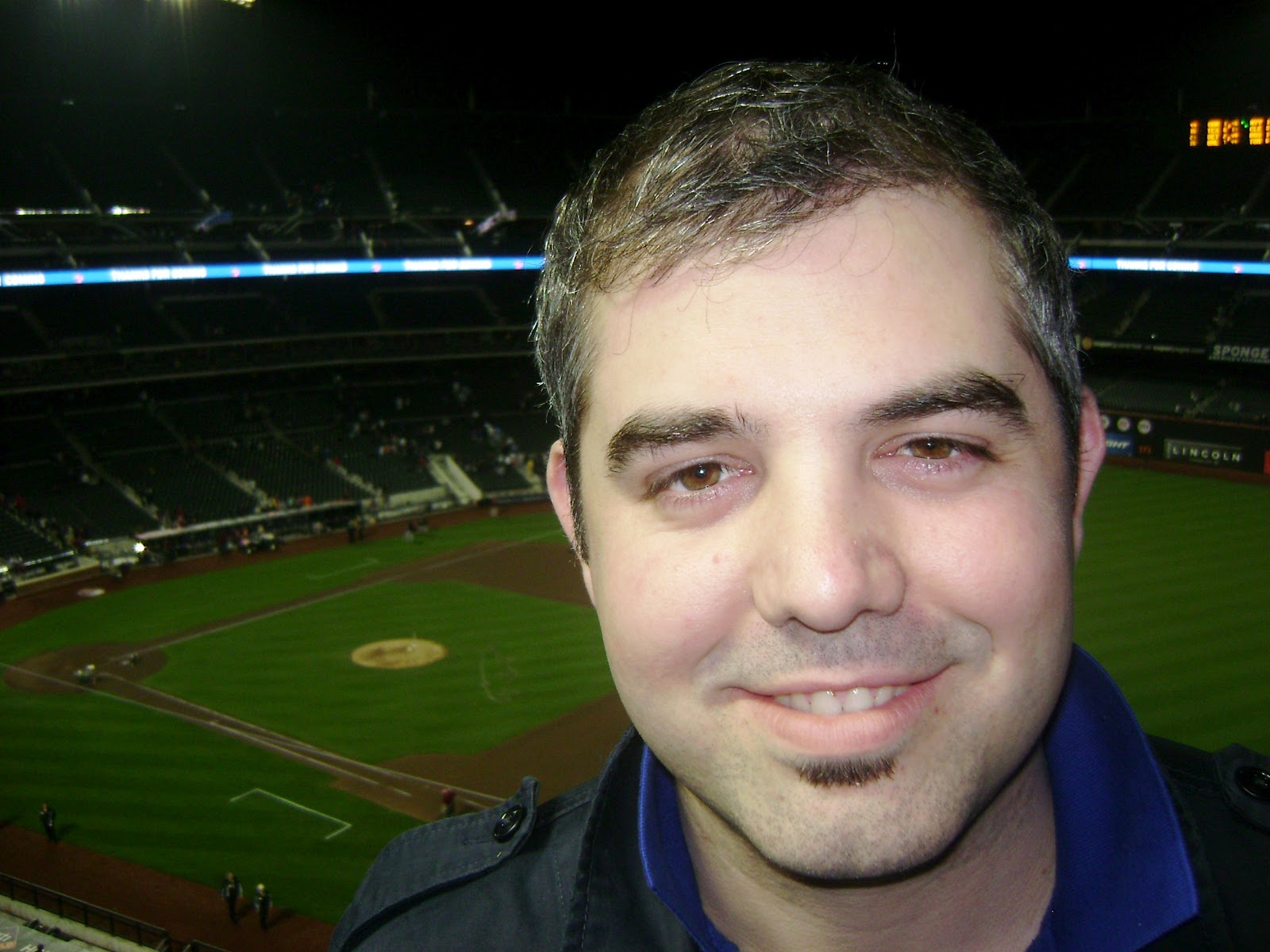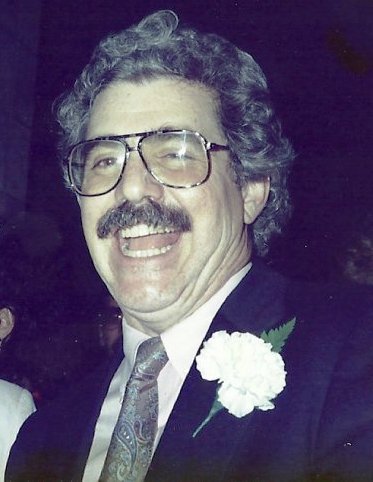 J. R. Angelella (Joseph Ross Angelella) is the author of the novel ZOMBIE (Soho Press) as well as a Southern Gothic supernatural YA series co-written with his wife, Kate Angelella, forthcoming from Sourcebooks/Teen Fire in 2013. He is also a contributing author to Who Done It? (Soho Teen), a murder-mystery anthology benefiting the nonprofit organization 826NYC. He teaches creative writing at the Gotham Writers’ Workshop in New York City. He was born and raised in Baltimore, Maryland, and now lives in Brooklyn with his wife, the writer Kate Angelella, and their two flauntingly obese cats, Pacey and Bailey.
J. R. Angelella (Joseph Ross Angelella) is the author of the novel ZOMBIE (Soho Press) as well as a Southern Gothic supernatural YA series co-written with his wife, Kate Angelella, forthcoming from Sourcebooks/Teen Fire in 2013. He is also a contributing author to Who Done It? (Soho Teen), a murder-mystery anthology benefiting the nonprofit organization 826NYC. He teaches creative writing at the Gotham Writers’ Workshop in New York City. He was born and raised in Baltimore, Maryland, and now lives in Brooklyn with his wife, the writer Kate Angelella, and their two flauntingly obese cats, Pacey and Bailey.
Over the course of several spirited conversations, my father, Rick Angelella, and I discussed all things Zombie, covering some serious familial ground and touching on such hot topics asour preferred necktie knots, the size of our inner film-nerd, and just how easy it is for Kevin Costner to make my Dad cry.
ROSS: Dad, I feel like this whole necktie knot conversation that seems to be sprouting up in the wake of ZOMBIE is something people are either completely unaware of or simply have never openly discussed. I feel like it’s only right that we begin by talking about necktie knots. I learned everything about knots from you, which begs the question --- who taught you?
RICK: Well, I taught you and my dad taught me. I must have been maybe 6 or 7. My dad was a salesman and so he
always wore a tie to work. He took great pride in making that knot and having the tie fall correctly to the top of the belt.

ROSS: It was easy to write about knots. There was no research required. But I did spend a good deal of time during that first writing session tying a knot over and over and over, then trying to describe it in as simple a way as possible. I remember feeling empowered by being the only kid in grade school to tie my own knots.
RICK: I thought Ballantine’s descriptions of the knots in ZOMBIE were accurate and pretty funny. I could relate. I could also really relate to him and Jeremy watching movies together.
ROSS: The whole movie aspect to the book came into play at a fairly late stage in the writing process, actually.
RICK: It’s a major part of the book, and really works well. I had no idea that was a late addition.
ROSS: I remember you introducing me to films by way of directors, upping the degree of complexity as I matured. Charlie Chaplin. Woody Allen. Alfred Hitchcock. Steven Spielberg. Ridley Scott. Robert Altman. Francis Ford Coppola. Martin Scorsese. Brian De Palma. Oliver Stone. Stanley Kubrick. Sam Peckinpah.
RICK: See, it’s that old Angelella line. My father is responsible for my introduction to movies, just as I am responsible for yours. We would just walk right in to the theater, usually midway though, find empty seats, and watch through to the end. After, we would stay through the first half that we had missed. Then he would lean over and say, “Okay, this is where we came in. Let’s go.” And we would get up and leave.
ROSS: I wish Poppop were here to be a part of this conversation. He would love it. I publish as J. R. Angelella because you sent me all of Poppop’s unpublished short stories just before he passed away. That was a very big moment for me. I made a promise to myself (and to him) to never give up on my dream of writing. And so I decided to take the pen name J. R. Angelella, out of respect for his name as written at the top of each story --- R. A. Angelella.
RICK: That’s a great story, Ross. I didn’t know that. He would have loved that. And what a nice memory to have --- receiving those stories when you did before he passed away. He is the reason movies are memories for me.
ROSS:We’ve talked a lot about movies and I can’t help but notice how many of them are very male-driven, testosterone action films. There are a lot famous sayings that exist, like r
eal men don’t cry. The strong, silent type. Do you hold subscribe to an idea of how a man is supposed to act?

RICK: I learned to avoid situations where I might be "picked on" much like Jeremy does throughout much of ZOMBIE. In order to have an argument you need two people. This is something I learned that got me out of some of those moments.
ROSS: What about showing emotion? Do you think that makes a man look weak?
RICK: As a man, showing emotion --- that really depends on who you are as a person. In Field of Dreams when Kevin Costner asks his dad for a catch, I am reduced to tears every time. In Red Dawn when Patrick Swazye tells Matty to turn his tears into something else, crying is used as a breaking point between adolescence and manhood. I don’t think it’s a sign of weakness at all that I cry when Kevin Costner asks his dad for a catch.
ROSS: Dad, I think you pretty much summed up in a paragraph what I attempted in 320 pages.
RICK: I don’t know about that. I only know what I know. I am me and you are you.
ROSS: We certainly are us. I love you, Dad.
RICK: I love you too, Ross.
 J. R. Angelella (Joseph Ross Angelella) is the author of the novel ZOMBIE (Soho Press) as well as a Southern Gothic supernatural YA series co-written with his wife, Kate Angelella, forthcoming from Sourcebooks/Teen Fire in 2013. He is also a contributing author to Who Done It? (Soho Teen), a murder-mystery anthology benefiting the nonprofit organization 826NYC. He teaches creative writing at the Gotham Writers’ Workshop in New York City. He was born and raised in Baltimore, Maryland, and now lives in Brooklyn with his wife, the writer Kate Angelella, and their two flauntingly obese cats, Pacey and Bailey.
J. R. Angelella (Joseph Ross Angelella) is the author of the novel ZOMBIE (Soho Press) as well as a Southern Gothic supernatural YA series co-written with his wife, Kate Angelella, forthcoming from Sourcebooks/Teen Fire in 2013. He is also a contributing author to Who Done It? (Soho Teen), a murder-mystery anthology benefiting the nonprofit organization 826NYC. He teaches creative writing at the Gotham Writers’ Workshop in New York City. He was born and raised in Baltimore, Maryland, and now lives in Brooklyn with his wife, the writer Kate Angelella, and their two flauntingly obese cats, Pacey and Bailey. 



